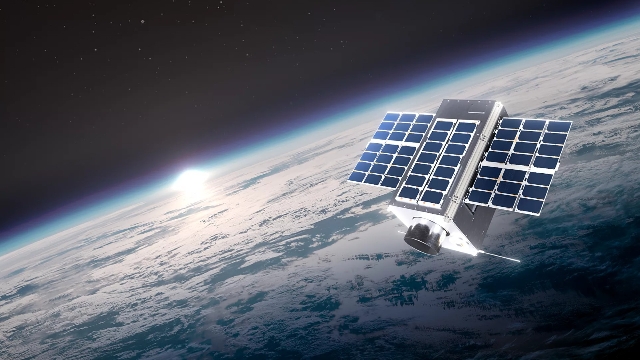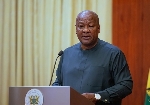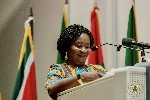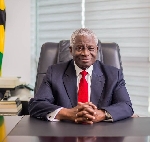National Space Science Policy launched in Ghana
 An image of outer space
An image of outer space
To utilise space technology for national advancement, Ghana has launched a landmark Space Science Policy.
The Minister of Environment, Science, Technology and Innovation (MESTI), Mrs Ophelia Hayford, led the launch in Accra, noting the significance and the promise space technology held for various sectors when adopted and regulated.
“Let us leverage this policy to promote sustainable practices, drive technological advancement, foster international cooperation, and contribute significantly to the growth of space science in Ghana and across Africa,” she urged.
The Manager of Remote Sensing and Climate at MESTI, Dr Kofi Asare said: “Satellite technology allows us to track crop health, soil conditions, and weather patterns, making it a vital tool for agriculture and environmental management.”
“Space technology can help us manage resources, track agricultural health, and mitigate climate change,” the Director of the Ghana Space Science and Technology Institute, Dr Joseph Bremang Tandoh, remarked.
He added the policy would boost job creation and impact infrastructural development.
The Vice-Chancellor of the University of Energy and Natural Resources, Professor Elvis Asare-Bediako, revealed the university was soon going to introduce undergraduate and postgraduate programmes in space technology.
“We are ready and equipped with expertise to partner with the government to push the exploration of space technology to its appropriate height,” he noted.
The Space Science Policy was approved by Cabinet in March 2022 but was launched today, Thursday, November 7, 2024. It is aimed at coordinating Ghana’s space activities and facilitating the establishment of the Ghana Space Agency.
In 2011 Ghana joined eight African countries, including South Africa, for the Square Kilometre Array (SKA) project, with the aim of building the world’s largest radio telescope network.
NASA launched Ghana's first-ever satellite, the GhanaSat-1, into orbit from the International Space Station on July 7, 2017. The creation of a group of engineering students at the All Nations University College (ANUC), Koforidua, Eastern Region, the GhanaSat-1 being the first private university satellite developed in Sub-Saharan Africa.
Bearing low and high-resolution cameras, among other technology, the GhanaSat-1, a CubeSat satellite, was launched into space for exploration and research purposes, measuring atmospheric density and aiding mapping by monitoring the country's coastline.
Trending News

U.S., Ghana explore stronger health collaboration
09:00
E/R: Rehabilitation works begin on Koforidua-Suhum road to ease commuters’ plight
09:10
President Mahama explores education and biotechnology partnerships in Singapore
06:39
Ghana poised to become Africa’s digital trade hub – Vice President
16:39
Don’t be intimidated by the presence of police; they're here to provide security – NYA CEO to Akwatia voters
08:50
NDC’s Godwin Tameklo questions the use of Internally Generated Funds at Ridge Hospital
08:56
Hassan Tampuli supports 238 tertiary students in Gushegu
06:13
Volta Region launches National Apprenticeship Programme with 2,060 beneficiaries
13:51
E/R: Vigil held in honour of late Ernest Yaw Kumi
10:45
Razak Kojo Opoku urges NPP to resist ‘entrenchment theorists’
07:31



